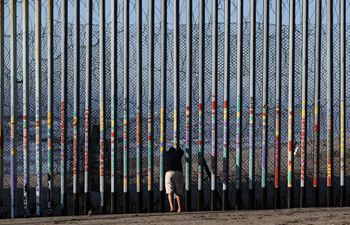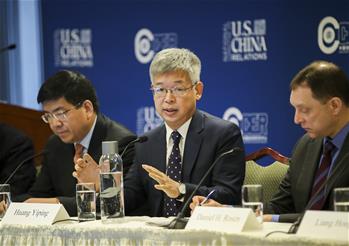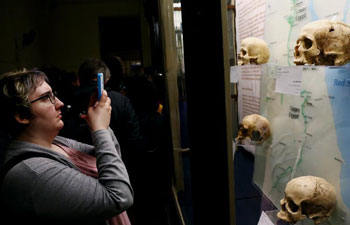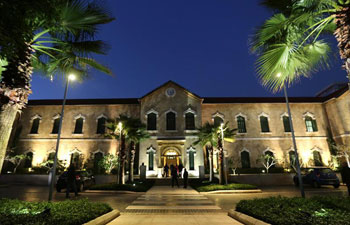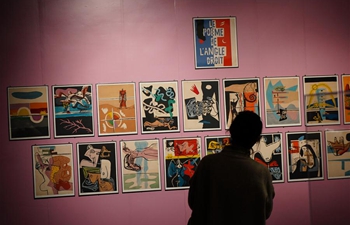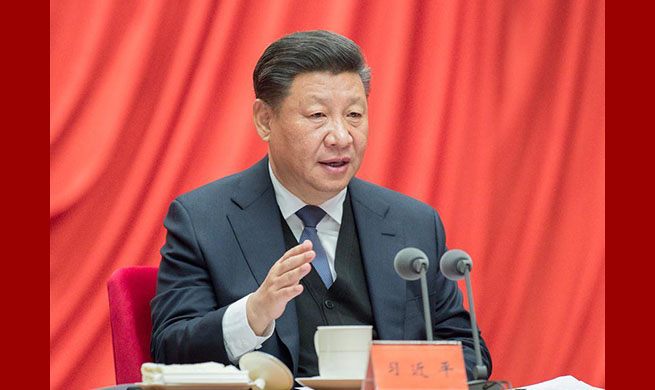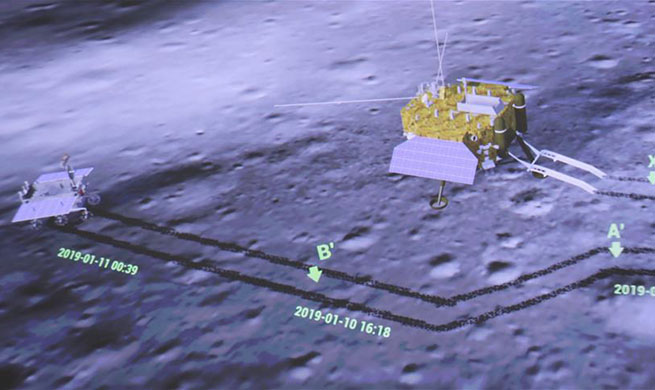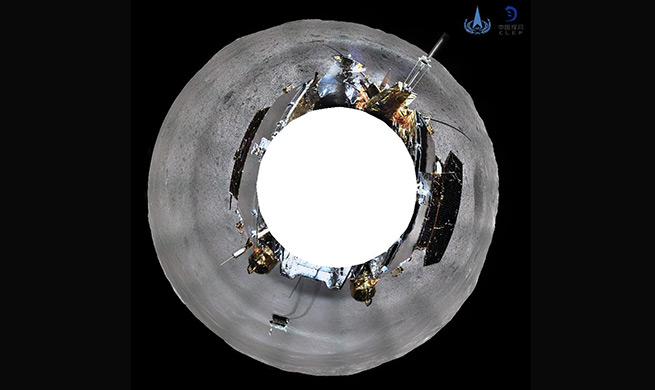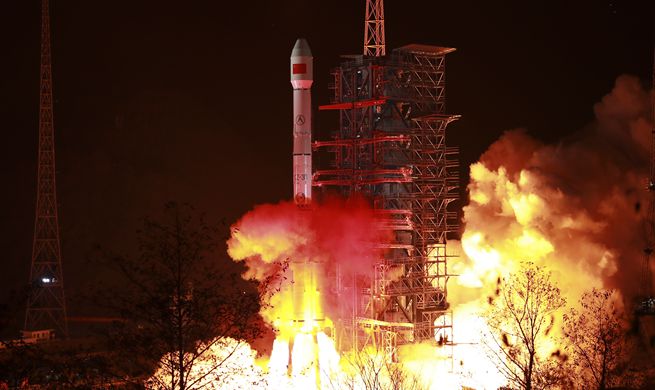WASHINGTON, Jan. 11 (Xinhua) -- Although participants at the annual Consumer Electronics Show (CES) in Las Vegas were sanguine about upcoming tech breakthroughs such as 5G and smart drones, the ongoing U.S. government shutdown proved to be a drag on that progress, at least for a while.
The most immediate hindrance to them is that multiple government officials canceled their appearance at CES to discuss with tech sectors "as a result of agency funding lapses," according to the organizer of CES, which came to a close Friday.
Federal Communications Commission (FCC) chairman Ajit Pai, and the agency's commissioner Brendan Carr skipped their trip this week to CES, where the tech world convenes each January to discuss industry developments and debut their latest products. They would have talked to the public about 5G, privacy and the rapidly changing technological landscape.
Recurrent data leak scandals last year led to a strong public call for government supervision on privacy, especially in a 5G era. Now, no official responses could be heard at the world's largest electronic trade show.
The country's scientific and technological activities bore the brunt in many substantial ways as well.
The FCC, an agency responsible for 5G licensing and approvals of all devices using radio frequencies, has suspended most of its operations and services.
The trendy gadgets at CES such as "smart" appliances fall under FCC's regulatory umbrella. Now that most of its employees are furloughed, no innovative idea can translate into a product soon.
Also, the review for the merger proposal for telecommunication giants Sprint and T-Mobile has been put to one side.
The Federal Aviation Administration (FAA) stopped their work on unmanned system exemption, meaning that any pilots hoping to test their drones in the air have to remake plans.
The government shutdown affected a much higher place. The main camera onboard the Hubble Space Telescope went out of operation on Tuesday due to a hardware problem, according to the U.S. space agency NASA. But its engineers are unlikely to fix the glitch until the end of the shutdown.
NASA also announced the delay of SpaceX's first uncrewed launch of Dragon spacecraft. It was scheduled to take off in January, but now put off to no earlier than February.
A NASA statement said it would broadcast the SpaceX's spacecraft release from the International Space Station on Sunday, but it has to go "without commentary," since the NASA narrators are furloughed and have to watch TV at home.
International scientific cooperation has been affected as well. An airborne observatory funded by NASA and Germany space agency was grounded. The observatory called SOFIA, installed on a Boeing airplane, is designed to take infrared pictures of our planet.
However, the most risky consequence of the government standstill is caused by the shutdown of the Food and Drug Administration (FDA). It has suspended new drug application review except for emergency ones.
The FDA approved a record 59 new drugs in 2018, including some life-saving ones to treat AIDS and cancer, but two weeks into the new year, no drugs have been approved.
The partial shutdown of the U.S. federal government stretched into the 21st day on Friday, tying the record for the longest in the country's history.
